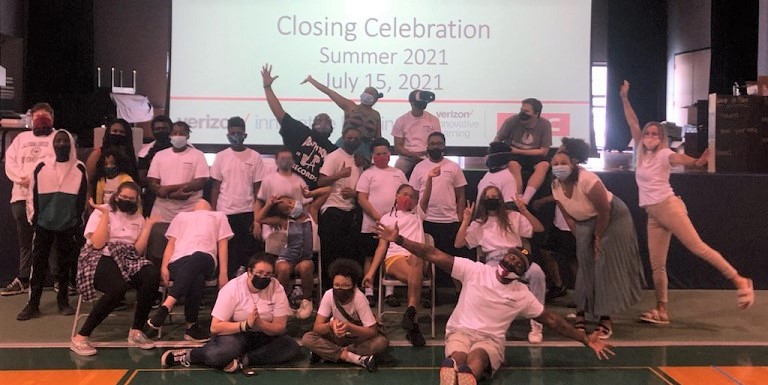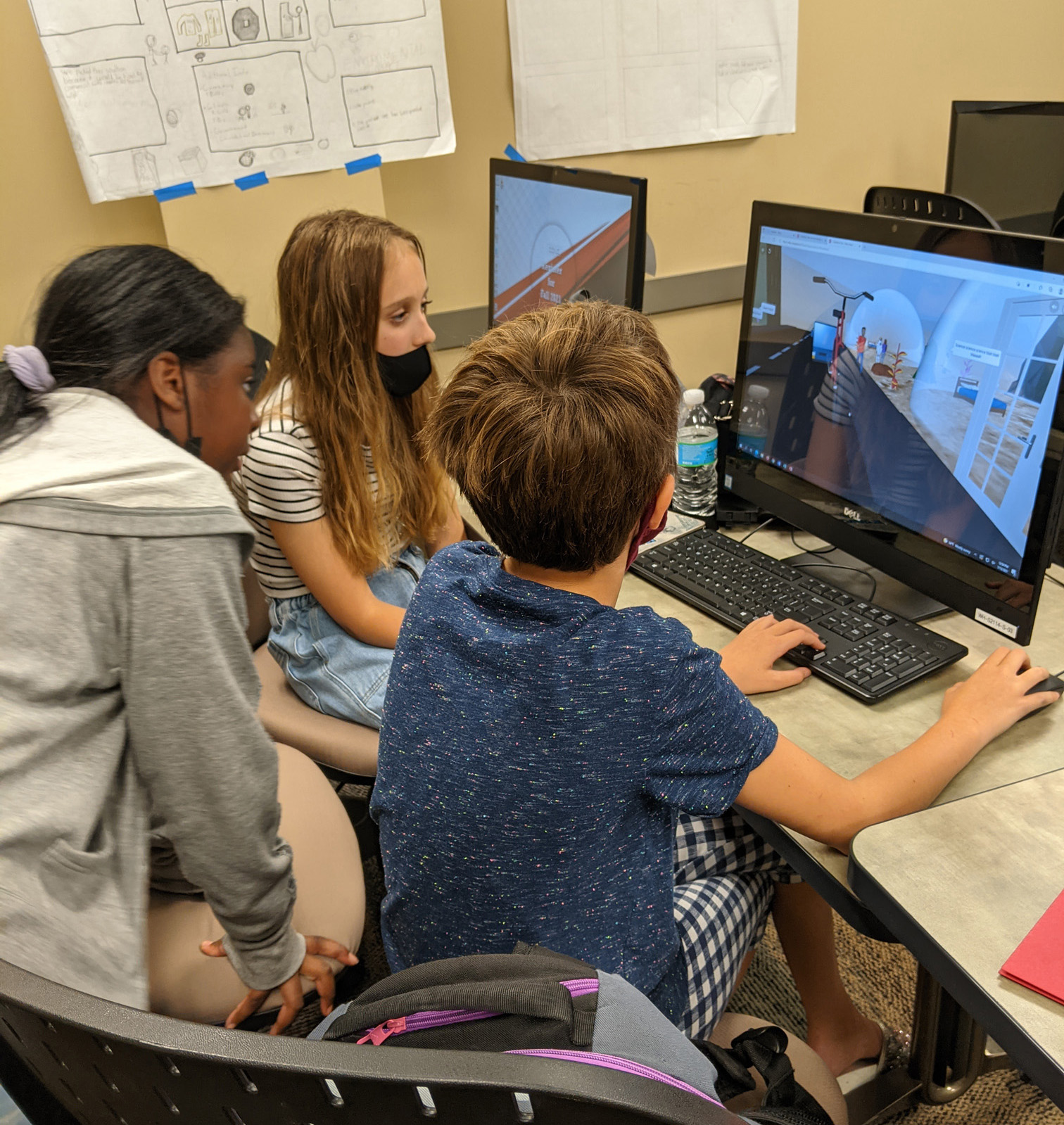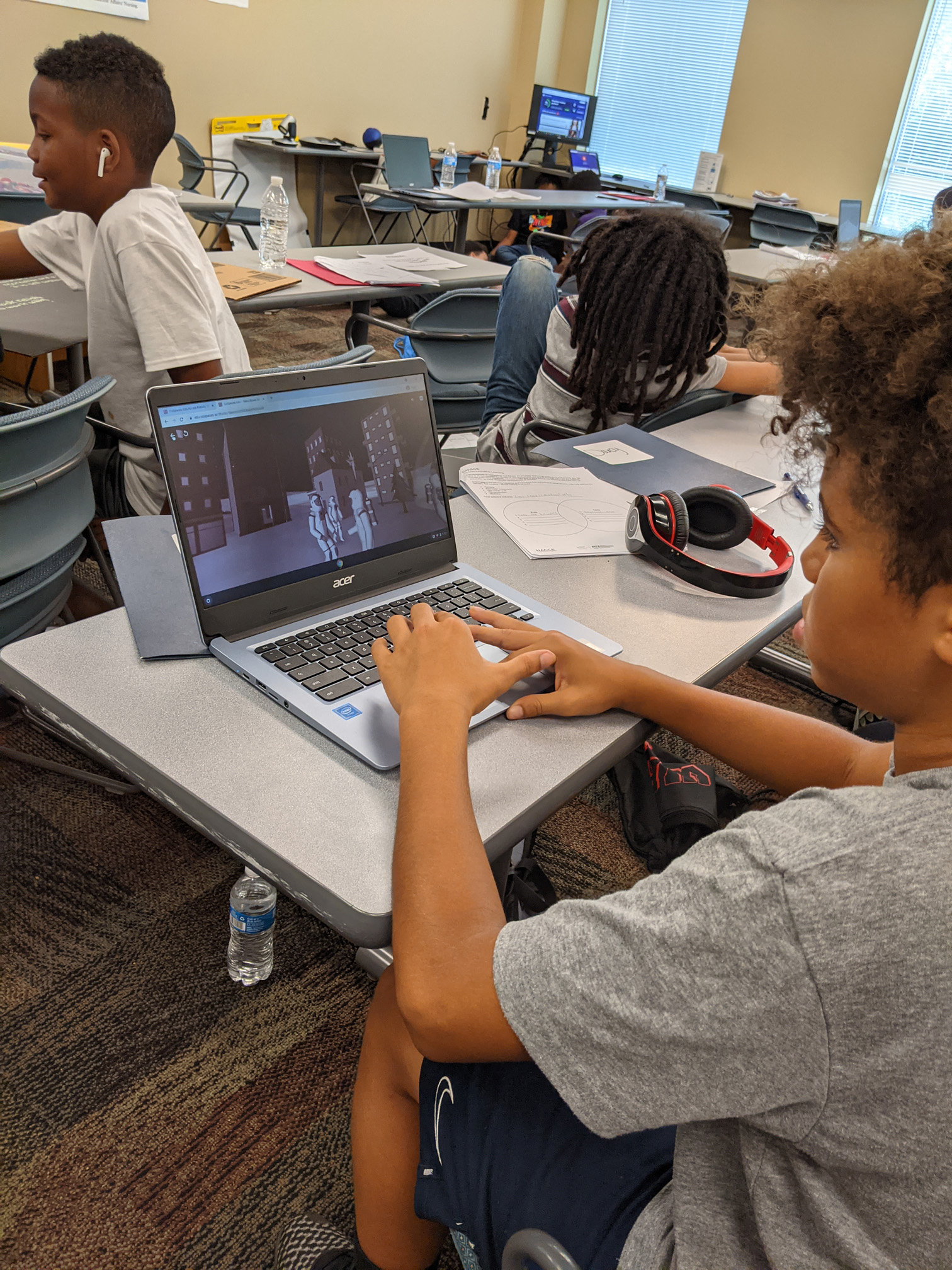Community College of Allegheny County: Engaging Program Teaches Middle School Students STEM Skills and Much More

This summer, dozens of middle school students in Pittsburgh, including those from underserved communities, discovered that science, technology, engineering, and math (STEM) is fun, that it’s ok to be smart, and that education can offer a path to a brighter future. Through a partnership with Verizon and the National Association for Community College Entrepreneurship, the Community College of Allegheny County (CCAC) hosted the Verizon Innovation Learning STEM enrichment program. The initiative is part of Citizen Verizon, the company’s responsible business plan for economic, environmental, and social advancement. The national program is designed to ensure equitable access to STEM education in under-resourced communities. The participants received an immersive STEM experience during the summer with subsequent sessions to be held one Saturday per month throughout the year. All students are paired with a mentor and receive career exposure opportunities led by Verizon employee volunteers and Pittsburgh community organizations, with the goal of creating a more diverse pipeline of skilled workers in STEM fields.
During the three-week summer session, students learned next-generation technology skills such as design thinking, block coding, 3D printing, and augmented reality as well as entrepreneurship. Except for 10-20 minutes a day devoted to lecture, all learning was hands-on, with the students actively engaged in using technology including virtual reality headsets, robotic cars, and coding software. According to CCAC Dean of Students Dr. Vladimir St. Surin, the program was held at the college as opposed to a community center so the students would learn to feel comfortable in a college setting. “Imagine being exposed at a young, impressionable age and you see that technology in your hands, and you think, ‘I could get a job and do that! Man, college is cool!’” said St. Surin. “These kids are really engaged and focused on learning and having fun.”

Students (from the left) Kendall Leggett, Victoria Richardson, and Ruari Kaleida-Ackerman
collaborate to create the final presentation for their Mission to Mars project.
One student, Yotuel, 12, confirmed those sentiments. When asked what he liked about the program, he said, “It’s really fun that I get to do new things that I’ve never done before. I want to come to CCAC when I’m older.”
The curriculum centered on a Mission to Mars theme, whereby students had to come up with solutions to real-life issues, such as economics and sustainability, while creating virtual communities on Mars. The activities included designing storyboards, programming robotic cars, creating prototypes with 3D printers, and using CoSpace software. During the third week, the students worked in small groups to develop final presentations of their virtual worlds to share what they learned with their parents.
“These kids are so impressive. They’re very good at grasping what they’ve learned and moving forward with it,” said Eva St. Surin, Verizon Innovation Learning STEM Program Coordinator.
While working on her presentation, another student, Hannah, 11, shared what she enjoyed about the program: “We got to drive robots around and we 3D-printed some things,” she said. Hannah, who also liked learning about ethics and the design thinking process, explained that design thinking means to do things in a certain order: “empathy first, then ideate, then prototype, then test and publish.”
Matthew, 12, understood that there was more to the program than STEM. “It gives everyone an opportunity to learn something new. It gives us better choices at life and gives us something to do in the summer.” He also liked learning about entrepreneurship, including “how to start a business, how to make it better, and how to grow as individuals.”

Program participant Darcy St. Surin works on perfecting his
virtual world in a classroom at CCAC’s West Hills Center.
One of the mentors, William Rollins, imparted some valuable life lessons to the students. Rollins, who works at Shuman Juvenile Detention Center, talked with some of the boys about how to make good choices and always put their efforts into something constructive. He said,
Hopefully, this is a path for them to choose a better way. I tell them, ‘You don’t have to fit into that mold just because you grew up in that environment.’ We’re giving them a safe haven where they can actually be themselves. You’re not putting on a tough exterior or a face for survival—you can be yourself, and you can be a child here.
Several of the parents sent emails to the staff expressing appreciation for the program. One mother wrote,
My son is so excited to go each day and talks all about it as soon as he comes home. He’s so proud to talk about what he’s done and learned and experienced there. It’s been so long since he has been excited about anything. [He] is autistic and often has trouble in crowded situations and difficulty with social interactions, and he’s gifted so he doesn’t always fit in at school. . . . I’m in awe that you have made an environment that makes him feel so challenged, inspired, and safe to be himself. He’s actually asking to go to bed early so he will be well rested for the next day’s adventures. Wow!
The parents were amazed by how much the students learned in three weeks, according to Vladimir St Surin. They also got to share in the fun and excitement when the students proudly presented their final projects. Using VR headsets and goggles, the parents were able to jump into the virtual world their student had created, pick up the 3D objects they had printed, and drive the robotic cars they had programmed. “They absolutely loved it, and they can’t wait for next year when they can enroll their other children,” he said.
Lead image: Middle school students and teachers gather for a photo at the closing celebration of the Verizon Innovative Learning STEM Enrichment Program at CCAC’s North Campus.
Margaret Anderson is a Promotions Writer, Public Relations and Marketing, at Community College of Allegheny County in Pittsburgh, Pennsylvania.
Opinions expressed in Member Spotlight are those of the author(s) and do not necessarily reflect those of the League for Innovation in the Community College.










